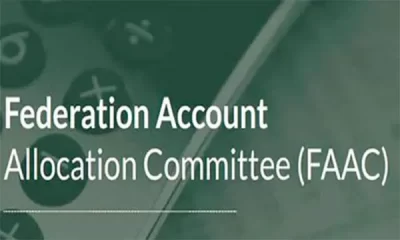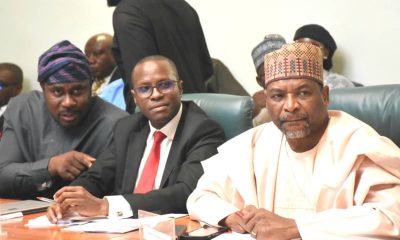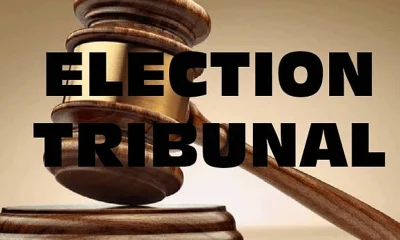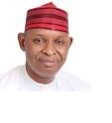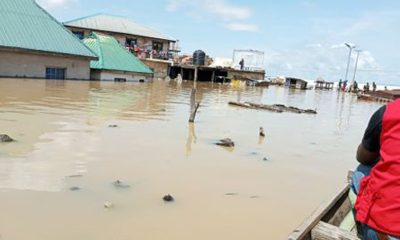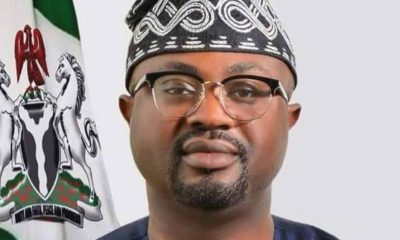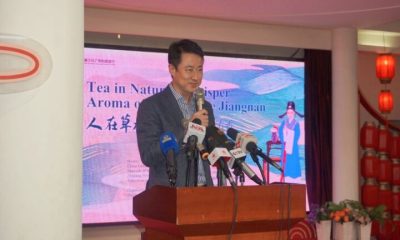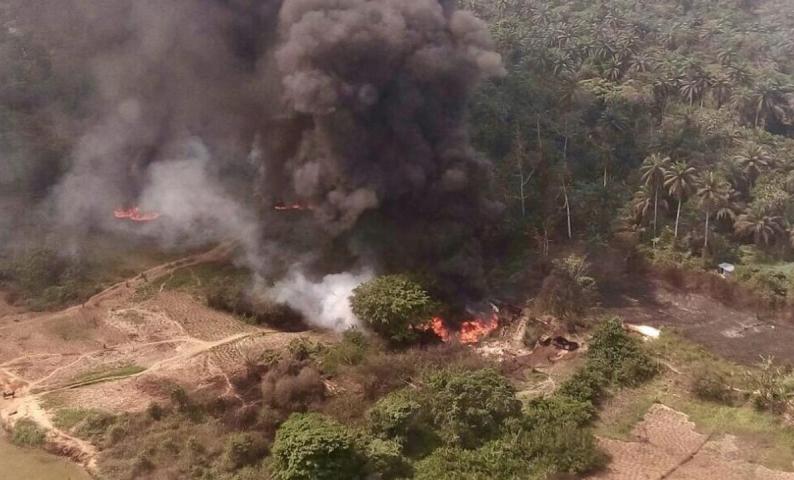Economy
Financial Autonomy: Benue, Nasarawa, Taraba LGs still Operate Joint Accounts
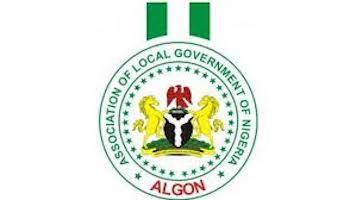
Local Government Councils in Benue, Taraba and Nasarawa states are still operating Joint Accounts in spite of the financial autonomy granted them by the Federal Government.
A survey conducted by News Agency of Nigeria(NAN) in these states revealed that the local governments still draw their funds from their respective states’ joint accounts.
The Benue chapter of the National Union of Local Government Employees (NULGE) said in spite of the signing into law the Local Government Autonomy Bill by President Muhammadu Buhari, local governments in the state were still receiving their monthly allocations from the state joint account.
The President of the union, Mr Terungwa Igbe, said that though individual councils ” now pay salaries to their workers, such salaries were remitted from the state joint account.
”Igbe said joint account meetings were still being held between the Bureau for Local Government and Chieftaincy Affairs and the Council Chairmen.
He said the meetings were solely for the purpose of transferring funds to individual council accounts.
He regretted that the federal government had yet to commence direct remittances into local government accounts for salary payment, but explained that such joint account meetings were avenues for the transfer of council funds to their individual accounts.
“The Bureau for Local Government And Chieftaincy Affairs no longer pays our salaries, it only transfers the monthly allocations paid into the joint account to our individual council accounts at the meetings.
“Our salaries are now paid by individual local government councils and not the bureau for Local Government again.
” It is individual councils that are paying salaries but what they are doing is that they will do joint account meeting, then transfer all the money from the joint account to local government accounts.
“The monies still come into bureau for Local Government and Chieftaincy Affairs joint account from the Federation Account.
The president said for now they were okay with the development since council funds were given to the councils unlike before that the bureau was handling it.
In Taraba, an official of the state chapter of the Association of Local Government Of Nigeria (ALGON), said the State Government was still operating joint account with the Local Governments.
“You know the local government councils in the state are still being run by caretaker committees; so everyone is afraid to demand compliance with the directives to stop joint allocation in the state,” the official who pleaded anonymity, said.
He, however, expressed hope that the situation might change after the state’s local government elections slated for May 16, when executive chairmen and councilors would emerge.
On his part, Mr Mohammed Kwanti, leader of the Taraba Advocacy for Accountability and Social Justice, a Civil Society Organisation (CSO) based in Jalingo, decried the delay in separation of function between local councils and states especially the joint allocation.
Kwanti said the fusion of financial control mechanism had further widened the poverty gap among Nigerian citizens.
He recalled how dividends of democracy had impacted positively on the local people until the review of the local government autonomy act that destabilised the efficient governance mechanism at the grass roots level.
“Now that financial control of local councils is with states, the grassroot is therefore, completely alienated from dividends of democracy.
“The hitherto execution of projects that had immediate impact on the locals is completely eroded.
“We are, therefore, calling on all the stakeholders to rise to the occasion and insist that the financial autonomy for local councils is reinstated,’’ he said.
Mr Aminu Maifata, Chairman of Association of Local Governments of Nigeria (ALGON), Nasarawa State chapter, said the joint account was still in existence in the state, but that allocations were being distributed to every local government the way they came from the federation account.
Maifata, who is also the Chairman of Lafia Local Government Council, commended Gov.Abdullahi Sule for the development.
He said that unlike in the past, local governments in the state could now executive projects that had bearing on the lives of their people provided they had the funds.
He, therefore, appealed for the amendment of the Constitution to make local government councils the third tier of government.
Meanwhile, the Kogi chapter of the National Union of Local Government Employees (NULGE) has called for a full autonomy for all the 774 local government councils in the country to save them from total collapse.
The President of the union, Mr Tade Adeyemi, who made the call, decried the state of affairs in the local governments in the country, saying that granting them full political and financial autonomy would put them back on track.
Adeyemi said that the partial financial autonomy granted the councils sometime by the Nigeria Financial Intelligence Unit had not been working due to the refusal of states to comply.
” State governments and the local governents are still maintaining joint account which simply means that the autonomy is not yet there,”he said.
According to him, Nigerians are still waiting for the outcome of the committee set up by President Muhammadu Buhari to enforce local government autonomy in all states.
He said that local government councils in the state had become weak financially, as they were finding it difficult to pay workers’ salaries
“The autonomy was not just there for the councils to perform. They have been crippled , granting them political and financial autonomy will change the situation for the better,” the chairman said.
He appealed to the National Assembly to speed up amendment of the 1999 Constitution, urging them to give priority to local government autonomy in the course of the amendment.
An activist, Mr Danasabe Umar , said that local government councils would not be able to discharge their statutory responsibilities unless they were granted autonomy.
Umar, who is the Chief Executive of a Lokoja-based Non Governmental Organisation, Hands Across Africa Development Initiative, appealed to state governors to see the local governments as another tiers of government constitutionally put in place to render services to the people at the grassroots.
He said that the local government system in Nigeria may become a thing of the past very soon unless all stakeholders came together to rescue it.
Umar also called on President Muhammadu Buhari to use his good offices to save the system from collapse by restoring the full autonomy to local government councils in the country. (NAN)
Economy
Customs Zone D Seizes Contraband Worth N110m

The Nigeria Customs Service (NCS), Federal Operation Unit (FOU), Zone D, has seized smuggled goods worth over N110 million between April 20 till date.
The Comptroller of Customs, Abubakar Umar, said this at a news conference on Tuesday in Bauchi.
He listed the seized items to include 11,200 litres of petrol; 192 bales of second hand clothing, 140 cartons of pasta, 125 pairs of jungle boots, 47 bags of foreign parboiled rice and 9.
40 kilogramme of pangolin scales.Umar said the items were seized through increased patrols, intelligence-led operations, and strengthened inter-agency collaboration.
The comptroller said the pangolin scales would be handed over to the National Environmental Standards and Regulations Enforcement Agency (NESREA) for appropriate action, while the seized petrol would be auctioned, and the proceeds remitted to the federation account.
He attributed the decrease in smuggling activities of wildlife, narcotics, and fuel to the dedication and professionalism displayed by the personnel in line with Sections 226 and 245 of the NCS Act 2023.
The comptroller enjoined traders to remain law abiding, adding the service would scale up sensitisation activities to combat smuggling.
“We remain resolute in securing the borders and contributing to Nigeria’s economic development,” he said.
The FOU Zone D comprises Adamawa; Taraba, Bauchi, Gombe, Borno, Yobe, Plateau, Benue and Nasarawa. (NAN)
Economy
Trade Tensions: Global Economy Stands at Fragile Turning Point -UN
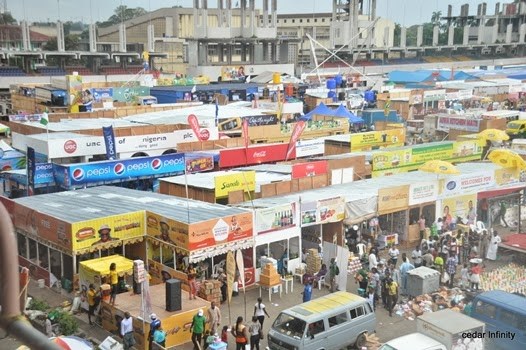
The UN Department of Economic and Social Affairs (UN DESA) has said that the global economy stands at a fragile turning point amid escalating trade tensions and growing policy uncertainties.UN DESA, in a report published on Thursday, stated that tariff-driven price pressures were adding to inflation risks, leaving trade-dependent economies particularly vulnerable.
It stated that higher tariffs and shifting trade policies were threatening to disrupt global supply chains, raise production costs, and delay key investment decisions – all of this weakening the prospects for global growth. The economic slowdown is widespread, affecting both developed and developing economies around the world, according to the report.For instance, in the United States, growth is projected to slow “significantly”, as higher tariffs and policy uncertainty are expected to weigh on private investment and consumer spending.Several major developing economies, including Brazil and Mexico, are also experiencing downward revisions in their growth forecasts.China’s economy is expected to grow by 4.6 per cent this year, down from 5.0 per cent in 2024. This slowdown reflects a weakening in consumer confidence, disruptions in export-driven manufacturing, and ongoing challenges in the Chinese property sector.By early 2025, inflation had exceeded pre-pandemic averages in two-thirds of countries worldwide, with more than 20 developing economies experiencing double-digit inflation rates.This comes despite global headline inflation easing between 2023 and 2024.Food inflation remained especially high in Africa, and in South and Western Asia, averaging above six per cent. This continues to hit low-income households hardest.Rising trade barriers and climate-related shocks are further driving up inflation, highlighting the urgent need for coordinated policies to stabilise prices and protect the most vulnerable populations.“The tariff shock risks hitting vulnerable developing countries hard,” Li Junhua, UN Under-Secretary-General for Economic and Social Affairs, said in a statement.As central banks try to balance the need to control inflation with efforts to support weakening economies, many governments – particularly in developing countries – have limited fiscal space. This makes it more difficult for them to respond effectively to the economic slowdown.For many developing countries, this challenging economic outlook threatens efforts to create jobs, reduce poverty, and tackle inequality, the report underlines. (NAN)Economy
FG To Finalize N1.5trn Road Concession Project- Edun

The Minister of Finance and Coordinating Minister of the Economy, Mr Wale Edun, says the Federal Government will soon finalise N1.5 trillion road concession project.
Edun made the statement during a meeting with some private sector investors in Abuja on Wednesday.
He said that the government was on the verge of finalising the landmark N1.
5 trillion road concession project, launched in 2021 under the Highway Development and Management Initiative (HDMI).The minister said that the initiative aimed to involve private sector partners in the reconstruction and management of nine major highways across the country, spanning approximately 900 kilometers.
He said that the partners had almost completed all arrangements for the highways, which they would finance, rebuild, and maintain under 25-years concession agreements.
Edun said that the concessionaires were expected to recoup their investments through tolling fees.
“We met the concessionaires who have virtually concluded all the agreement arrangements for nine roads, nine major highways, which they are contracting to refinance the rebuilding of and to recover their funds from tolling fees under 25-year or so agreements.
“And we met them to iron out the remaining administrative obstacles for the kicking off construction of these roads,” he said.
Edun said that the substantial private sector investment would bridge budgetary gaps.
He added that it would also allow investors to undertake revenue-generating projects, leveraging their expertise and resources for long-term implementation and maintenance.
“Thereafter, it will be a question of signing the addendums and moving to the site.
“As you know, already the 125-kilometer Benin–Asaba Highway concession agreement has been signed. The addendum has been signed.
“All arrangements have been finalised, in fact, the ministry of works have handed over the road to the concessionaires.
“They have already started the preliminary arrangements for reconstruction of that road in place of a 10 lane highway.
“It is an investment, it’s a project and an initiative that will reduce the travel time between Benin and Asaba right up to the Niger Bridge,” the minister said.
Edun said that the Benin–Asaba Highway project, which has already commenced, is expected to reduce travel time between Benin and Asaba from four hours to one hour, significantly enhancing productivity and efficiency in the region.
He described the HDMI, launched in 2021, as a strategic programme by the federal government aimed at attracting private sector investment to improve Nigeria’s federal road network.
Edun said that the initiative seeks to address the challenges of inadequate funding and maintenance by leveraging Public-Private Partnerships (PPP) to develop and manage road infrastructure.
Under the HDMI, 12 highways were initially selected for concession, covering a total of 1,963 kilometers.
These roads include Benin–Asaba, Abuja–Lokoja, Kano–Katsina, Onitsha–Owerri–Aba, Shagamu–Benin, Abuja–Keffi–Akwanga, Kano–Shuari.
Others are Potiskum–Damaturu, Lokoja–Benin, Enugu–Port Harcourt, Ilorin–Jebba, Lagos–Ota–Abeokuta, and Lagos–Badagry–Seme roads.
The minister said that the initiative was projected to generate over 50,000 direct and 200,000 indirect jobs, contributing significantly to the country’s economic growth and development.
The Minister of Works, Engineer David Umahi who joined the meeting virtually reassured the private sector partners on the HDMI of the federal government commitment.
He said that everything possible would be done to resolve the contending issues, adding he will soon be back to address all pending issues.
One of the concessionaires, Mr Kola Karim, representing Shoreline, emphasised the need for right and enforceable documents stipulating the takeoff and handover dates, which would attract investors to invest their funds.
Other private sector partners also requested for the addendum to the original agreement to be signed that would enable toll sections of the completed highways while work was in progress on other sections.
They noted that each concessionaire has unique challenges that should be dealt with accordingly.
Also in the meeting were Minister of Budget and Economic Planning, Abubakar Bagudu, and the Director General Infrastructure Concession and Regulatory Commission (ICRC), Dr Jobson Ewalefoh

